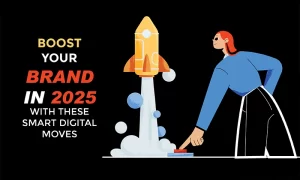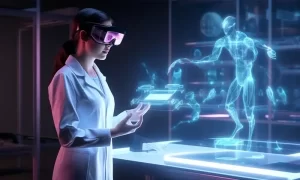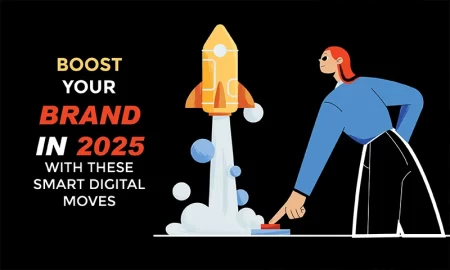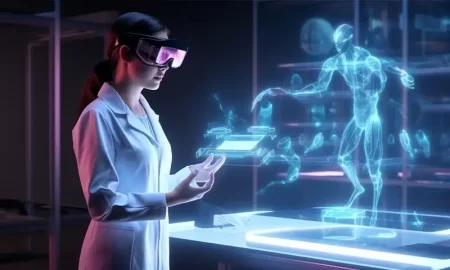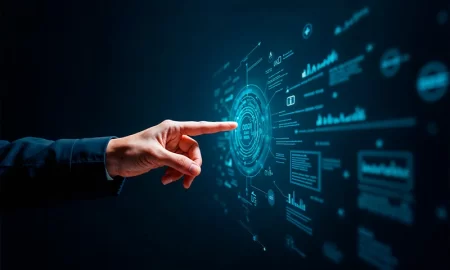In today’s fast-paced world, technological advancements are transforming industries at an unprecedented rate. Staying ahead of the curve is crucial for individuals and businesses alike, as new breakthroughs bring about opportunities and challenges that can make or break success. In this article, we will explore some of the most exciting and game-changing innovations that are shaping the future. From artificial intelligence to block chain and beyond, these technologies have the potential to revolutionize the way we live, work, and interact. Let’s dive in and discover the incredible possibilities that lie ahead!
Artificial Intelligence: Unleashing the Power of Intelligent Machines
Artificial Intelligence (AI) is no longer just a sci-fi concept; it is now a reality that is reshaping various industries. AI systems are designed to mimic human intelligence and perform tasks that traditionally required human intervention. From virtual assistants like Siri and Alexa to autonomous vehicles and personalized recommendations, AI is transforming the way we interact with technology. The ability of AI to analyse vast amounts of data and make predictions has significant implications for sectors such as healthcare, finance, and manufacturing, among others.
Internet of Things (IoT): Connecting the World like Never Before
The Internet of Things (IoT) refers to the network of interconnected devices that can communicate and share data with each other. From smart homes and wearable devices to industrial sensors and autonomous infrastructure, IoT is revolutionizing the way we live and work. By enabling devices to collect and exchange information, IoT has the potential to optimize processes, improve efficiency, and enhance convenience. The increasing adoption of IoT is expected to drive innovation across sectors, leading to the emergence of smart cities, connected healthcare systems, and more.
Block chain: Revolutionizing Trust and Security
Block chain technology, initially known for its association with cryptocurrencies like Bitcoin, is now being recognized for its potential beyond finance. At its core, block chain is a decentralized and transparent digital ledger that records transactions across multiple computers. This technology eliminates the need for intermediaries, enhances security, and ensures trust among participants. Industries such as supply chain management, healthcare, and intellectual property are exploring block chain’s potential to improve transparency, reduce fraud, and streamline processes.
5G: Powering the Future of Connectivity
The next generation of wireless technology, 5G, promises to revolutionize connectivity by providing faster speeds, lower latency, and greater capacity. With 5G, we can expect to see advancements in areas such as autonomous vehicles, virtual reality, and telemedicine. The high-speed and low-latency capabilities of 5G networks will enable real-time communication and enhance the performance of internet-enabled devices. As 5G infrastructure continues to roll out globally, it will unlock new possibilities for innovation and change the way we connect and communicate.
Extended Reality (XR): Bridging the Physical and Virtual Worlds
Extended Reality (XR) is an umbrella term that encompasses virtual reality (VR), augmented reality (AR), and mixed reality (MR). XR technologies create immersive experiences by merging the physical and digital realms. From immersive gaming and virtual training simulations to interactive storytelling and architectural visualization, XR is transforming industries such as entertainment, education, and healthcare. The ability to overlay digital content onto the real world or transport users to entirely virtual environments opens up new avenues for creativity, productivity, and engagement.
Quantum Computing: Unleashing Unprecedented Processing Power
Quantum computing, still in its nascent stages, has the potential to revolutionize computing as we know it. Unlike classical computers that use bits to represent information, quantum computers use quantum bits, or qubits, which can exist in multiple states simultaneously. This parallel states enables quantum computers to solve complex problems exponentially faster than classical computers. Quantum computing has the potential to impact various fields, including cryptography, optimization, drug discovery, and climate modelling. While practical quantum computers are still being developed, researchers and organizations are actively exploring the possibilities and investing in this transformative technology.
Edge Computing: Bringing Computing Power Closer to the Source
Edge computing is a distributed computing model that brings data processing and storage closer to the source of data generation. Unlike traditional cloud computing, which relies on centralized data centres, edge computing leverages local servers or edge devices to process data in real-time. This approach reduces latency, enhances privacy, and enables faster decision-making in applications such as autonomous vehicles, smart grids, and remote monitoring systems. As the Internet of Things continues to expand, edge computing will play a vital role in managing and analysing the massive volumes of data generated at the edge.
Biotechnology: Unlocking the Potential of Living Systems
Biotechnology is a multidisciplinary field that combines biology, chemistry, and technology to develop innovative solutions and products. It encompasses areas such as genetic engineering, synthetic biology, and bioinformatics. Biotechnology has the potential to revolutionize healthcare, agriculture, and environmental sustainability. From gene therapies and personalized medicine to biofuels and sustainable materials, biotechnology is unlocking the potential of living systems to address global challenges and improve quality of life.
Robotics and Automation: Transforming Industries and Workforce
Robotics and automation technologies are reshaping industries by automating repetitive tasks, improving efficiency, and enabling new possibilities. From manufacturing and logistics to healthcare and agriculture, robots are being deployed in various sectors to enhance productivity and precision. Collaborative robots, known as cobots, are designed to work alongside humans, augmenting their capabilities and increasing safety. Automation technologies, such as robotic process automation (RPA), are streamlining workflows and reducing human error. As robotics and automation continue to advance, they will redefine job roles, requiring individuals to adapt and acquire new skills.
Renewable Energy: Paving the Way to a Sustainable Future
Renewable energy technologies, including solar, wind, hydro, and geothermal power, are transforming the energy landscape. As the world recognizes the need to mitigate climate change and reduce dependence on fossil fuels, renewable energy sources are becoming increasingly important. Technological advancements in energy storage, grid integration, and efficiency are making renewable energy more accessible and cost-effective. The transition to renewable energy not only contributes to environmental sustainability but also fosters economic growth and energy independence.
Conclusion:
The rapid pace of technological advancements is ushering in a new era of possibilities and challenges. From artificial intelligence and block chain to 5G and renewable energy, these game-changing innovations have the potential to reshape industries, improve lives, and drive economic growth. Embracing these technologies and staying informed about their developments will be crucial for individuals and businesses to remain competitive in the fast-changing landscape. As we navigate the future, it is essential to harness the power of these innovations responsibly and ethically, ensuring that they benefit society as a whole. The future is brimming with potential, and by embracing and leveraging these fast-growing technologies, we can create a world of endless opportunities and positive change.

